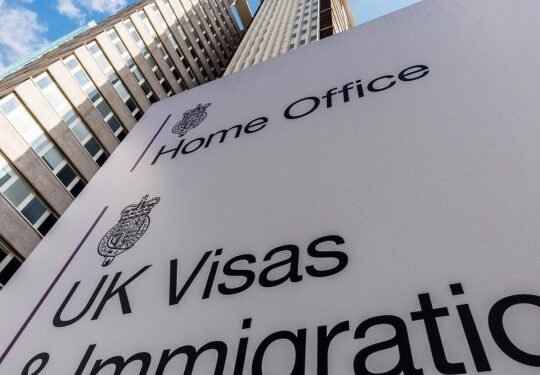By: Christian Aboagye | Social Worker & Mental Health Practitioner
IMMIGRATION CHANGES – 2025 – 2
From 22nd July 2025, the UK government will implement substantial increases to the minimum salary requirements under the Skilled Worker visa scheme. For many migrants and their employers, this is more than just a change in numbers — it is a tightening grip on who is considered “desirable” in post-Brexit Britain.
As a social worker in the mental health sector, I’ve worked with numerous migrants who hold essential yet modestly paid roles. As a keen observer of immigration law, I also see the growing legal and ethical tension this policy presents.
What’s Changing?
The general minimum salary threshold for a Skilled Worker visa will increase from £38,700 to £41,700 per year. Special thresholds for new entrants, those under 26, and those with relevant PhDs or roles in education/healthcare sectors are also being raised — albeit with minor adjustments.
But this isn’t just about numbers on paper. These thresholds effectively price out thousands of workers in key sectors: social care, hospitality, early childhood education, and mental health support. It redefines what the UK values as “skilled” — and who it allows to stay or enter.
Real-World Implications
This shift disproportionately affects migrants already on the edge — those working multiple part-time jobs, supporting extended families, or trying to build stable lives. Many employers simply cannot afford to meet these salary demands, especially in underfunded sectors like social care and community mental health.
Imagine a migrant support worker earning £30,000 — the heart and hands of a care team — now unable to qualify for visa renewal because their wage doesn’t hit the new ceiling. Do we dismiss their skill because it isn’t attached to a six-figure job title?
The system now tells them: your work is valuable, but not valuable enough.
From a Social Work Lens
I work with families who depend on these workers for survival — elderly patients needing home care, adults in crisis needing round-the-clock support, children in foster placements relying on consistent engagement from cultural mediators or support staff.
When workers in these roles leave due to visa expiration, it’s not just a vacancy — it’s a loss of continuity, cultural understanding, and community trust.
This policy may reduce net migration on paper, but it risks hollowing out the human infrastructure of care and compassion that services like the NHS and local councils rely upon.
From a Legal Perspective
Legally speaking, employers now carry greater responsibility in ensuring salaries meet eligibility criteria — but without funding boosts or real-world market adaptation, many will simply withdraw from the sponsorship process altogether.
While existing visa holders will not be immediately affected, those applying anew — or switching roles — must meet the higher threshold. This includes workers whose job titles remain the same but whose working hours or pay packages don’t reflect the updated criteria.
The implications are clear: unless employers are ready to restructure pay bands or job descriptions, many roles will fall out of sponsorship eligibility.
Unintended Consequences
This policy may create a two-tier system: a shrinking class of high-paid “welcomed” migrants and an expanding group of undocumented or overstayed workers, pushed underground by lack of options. The risks of exploitation, mental distress, and social exclusion grow with each layer of red tape.
The government’s focus on attracting “the brightest and best” overlooks the fact that the brightest heart may not come with a flashy degree or a £45k salary — but with lived experience, compassion, and a willingness to serve where others won’t.
What Needs to Happen?
If the UK truly values the resilience of its healthcare and social systems, it must pair these salary reforms with practical supports:
- Sector-specific salary exemptions
- Funded employer subsidies for critical roles
- Flexibility for public service professions
- Consultation with unions, councils, and migrant advocacy groups
These measures are not handouts; they are investments in social stability.
Final Word
Raising salary thresholds won’t fix the UK’s immigration “problems.” It will, however, drive out skilled, compassionate, and committed individuals from the very roles that hold our communities together.
This is not just policy — it’s people’s lives. And if we forget that, we lose more than workers. We lose our humanity.





























